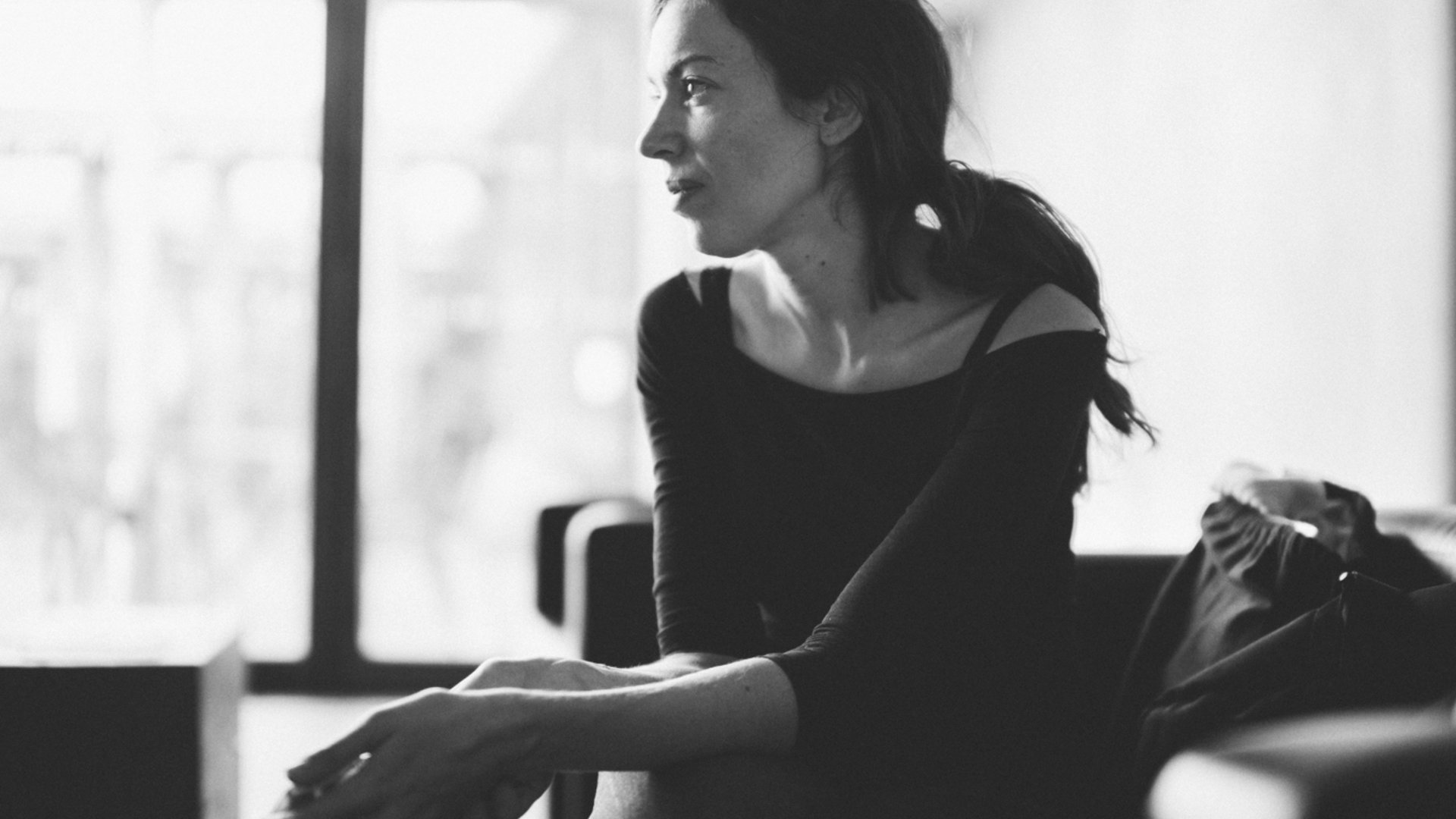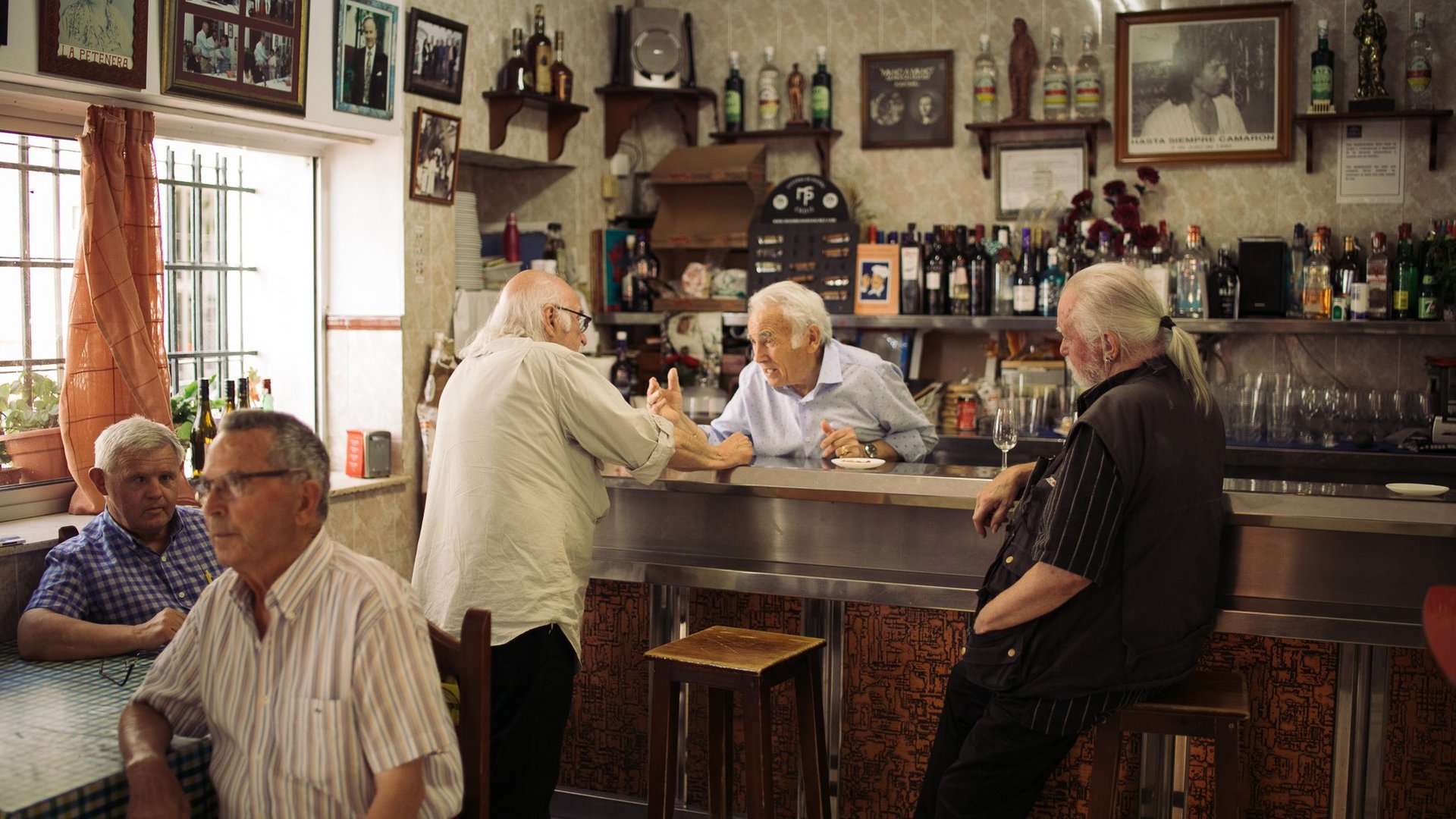
© Lucija Stojević

© Lucija Stojević
Lucija Stojević is a Croatian-born director and producer who lives in Barcelona. Her documentary feature La Chana (2016) won seventeen awards and was a finalist for best documentary at the European Film Awards 2017. She started this film when she met Peter Pérez through a mutual friend, and was thrown into his fascinating story after listening to a flamenco song with him.
Pepi Fandango is a road trip deep into the hidden trauma of Peter Pérez (Pepi), a Holocaust survivor, who wants to travel to southern Spain to confront the pain of the past. It is also a documentary about the friendship between two old men from Vienna and the music that guides their journey.
As a child, Pepi was separated from his parents at Rivesaltes concentration camp, where he was deeply affected by the songs sung by Roma children. Now in his mid-eighties, Pepi still struggles with his trauma from the camps. After a long journey filled with many discussions and quarrels, the two friends arrive in Paterna de Rivera, Spain, where Pepi has sought solace for years. As the village prepares for its annual fiesta, Pepi attempts to write his take on a fandango. For him, the fandango is the catalyst for coming to terms with all the horrible memories that haunt him. But he realizes that he must return to the campground in Rivesaltes to confront his trauma.
Lucija Stojević: It is a film about living with pain, living with trauma, living with something you can’t resolve. But it’s also a film about friendship. And it’s a film about these little bridges that we try to build, that we sometimes don’t even see, even though they’re right next to us. And then these little moments of connection, which are what keep us going. It is a very subtle film in many ways because it also has the theme of male friendship, a kind of friendship that is not obvious and only shows itself discreetly.
It’s a type of flamenco ballad. Within flamenco, there are a lot of different styles, and fandango is almost the most basic type, the most guttural. It’s often just about pure expression; it’s kind of like the blues. It allows for the very simple expression of a simple emotion in a four-beat rhythm.
It’s the Trägermaterial, the catalyst.’ His fandango connects him to history. It transports him. It’s a way of articulating the transformative power of expression.



The film was made over the course of ten years. It’s a very layered film. Structuring it was a nightmare, but it was one of those soul movies, the ones that really give you the chance to explore. Obviously, there were a lot of breaks and other projects in between. But any chance I got, I went and talked to Pepi. We did a couple of research shoots. The first thing was trying to understand his story. The second thing was trying to understand what we can take from it from today’s perspective. Eighty-eight years of a life— looking back, many things evolved. Particularly in those first seven years of his life, so much happened that created the trauma inside him and affected the rest of his life. I’m trying to look at bigger human questions. What happens when you carry this kind of survivor story across a lifetime? How do you deal with Europe forgetting such histories? And what does the music mean? What does it symbolize in this story, not just in that moment, but also throughout his life? It became clear that there’s no end to this story. When you work with trauma for a film, it can be very complicated because there is no way that you can find an ending.
There were symbols that started to come out in the process. We asked ourselves why we kept finding these images or associating them with our film. Pepi lives near the Prater amusement park in Vienna, which we kept going past with him. And in the film, there is the idea of a lost childhood. He is constantly passing this place of joy, with kids screaming, but it’s something that’s so far removed from him. And when we were in Paterna, they were setting up this annual fiesta, a kind of loud, surreal, very Spanish amusement park at the edge of town. And then, of course, all these symbols started to pop up, and they began to have more than one meaning. So, as the movie progresses, they start to change meaning as you get more information as a viewer. There were also these Don Quixote-style wind turbines everywhere, you know— the renewable energy wind turbines, not as romantic anymore. And they were another thing that started to add another layer and another meaning to the film.
Yes, that was a big question. How do we work with the different parts of the memory? Pepi was a child when the story of his internment was happening. So, there were a lot of things, and he himself talks about them. What is something that he actually remembers? What is something that he remembers because he was told it happened? What is something that his mother told him afterwards that he then started imagining? How do we illustrate the fleetingness of memory, and how we create a narrative that becomes part of our story in some way? He remembers things like holding someone’s hand when they entered the camp, but he doesn’t remember why he was separated from his mother. We were asking ourselves how we could create that kind of associative memory, the subjective memory of a child from that time. We came across this footage in Slovakia. There was one film-maker— Marek Šulík, I think was his name. He put out a call; he needed archives from families from that time period. Was there anyone who wanted to give him their footage? And I think there were forty-five or fifty families that gave him their entire family archive to digitize. So, he has this incredible archive of family material that goes from the beginning of the last century all the way up to the 1970s, but it was all shot on super eight cameras. This double exposure stuff was actually original footage. And we found these things that very much reflected or allowed us to visualize and work with the material that Pepi was giving us.
The music, of course, plays a crucial part. It is the catalyst for the entire film. That moment in the camp with the children, in pain, calling for their mothers is the moment that opens up the film, the moment that sets us on the road of the whole narrative. From spending time with Pepi, we could see what the music did to him anytime somebody sang to him. There was a certain moment of relief. You could see it in his face. Pain, relief. Everything would come at once. But then he would be back to zero, a little bit like with the carousel. And while he has a lot of great, incredible friends, it’s like he never reaches that music that he hears in his head. The need to sing something because you’re hungry, because you’re starving, because you’re having a moment where you miss your mother and she’s not there. We have scenes where people are singing around Pepi, trying to please him in some way, because they know his story and they’re trying to help him, but it never really works. But all of a sudden, Pepi’s friend Alfred, who plays the guitar, comes to shine as a character. He doesn’t play incredibly, but there’s an imperfect way that he plays that works for Pepi much better than anything else. And it’s not what he really thinks he’s looking for, but it gives him something that nothing else gives him. And Alfred also knows when to do it at the right moment.
I can understand what he means to a certain degree because, even when you take away someone’s freedom, you can’t take away their capacity to strive for something, to dream, to hope. And once you do that, they’re really finished. But honestly, I think that would be something that only he could answer … You might have to ask him yourself, maybe at the screening in Berlin.